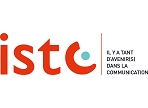OUR ACADEMIC DEPARTEMENTS |
Lesson details
 | Operational Management | ||
2019-2020 | EnISTC - L'ECOLE DES MANAGERS DE LA COMMUNICATION
(
ISTC
)
| ||
Class code : | 1920-ISTC-M5S2-UE30-MANOPE | UE30 | |
| Level | Year | Period | Language of instruction |
|---|---|---|---|
| Master | 5 | S2 | EnFrench |
| Academic responsibility | S.VIOLETTE |
|---|---|
| Lecturer(s) | - |
- This class exists in these courses :
- ISTC > Master in Economics and Business - Specialisation in International Business and Economics Engineering > Semester 1 > 2,00 ECTS
- ISTC > Master in Economics and Business - Specialisation in International Business and Economics Engineering > Semester 2 > 2,00 ECTS
Prerequisites
Students should have faced various professional management situations during an internship or a project.
Learning outcomes
- Distinguishing the scope of strategic, organisational, and operational management.
- Knowing the main components of interpersonal and team management.
- Understanding the different forms of teamwork.
- Take in a few basic social skills.
- Knowing your natural management style and its characteristics.
- Understanding the interaction of managerial skills and social skills.
- Using a number of major tools such as delegating, refocusing, conducting individual interviews and meetings, managing time.
This course develops the following professional skills:
- Understanding, analysing and interpreting one’s environment (general knowledge), including the global context.
- Developing your personality with an emphasis on values of integrity, open-mindedness, tolerance, and respect.
- Applying “principles” to every action: diligence, autonomy, interdisciplinarity, innovation, inventiveness.
- Being able to lead a team and manage projects from start to finish, including in an international context.
Course description
1/ Scope and definition.
2/ Strategic management reminder: how strategy gives meaning and space to the operational manager.
3/ Organisational management reminder: quick overview of behaviour types and team profiles.
4/ Cultures and corporate culture: how culture influences a business and how it functions.
5/ Communication and PCM (Process Communication Model): Knowing your driving forces and your natural style, acknowledging others and adapting to succeed together depending on situations.
6/ Operational management: managerial skills principles – acknowledging, refocusing, delegating.
7/ Conflict management: methods and practice.
8/ Tools: meeting management and time management.
9/ Change and the manager of tomorrow: how to manage and think ahead of change.
10/ Conclusion: personal appraisal of knowledge and skills.
Class type
Class structure
| Type of course | Numbers of hours | Comments | |
|---|---|---|---|
| Face to face | |||
| 12,00 | |||
| Independent study | |||
| Travail personnel indicatif | 24,00 | ||
| Total student workload | 36,00 | ||
Teaching methods
- Exercises
- Simulation / Role play
- Tutorial
Assessment
| Type of control | Duration | Number | Percentage break-down |
|---|---|---|---|
| Continuous assessment | |||
| Etude de cas | 2,00 | 1 | 100,00 |
| TOTAL | 100,00 | ||
* This information is non-binding and can be subject to change


















































































